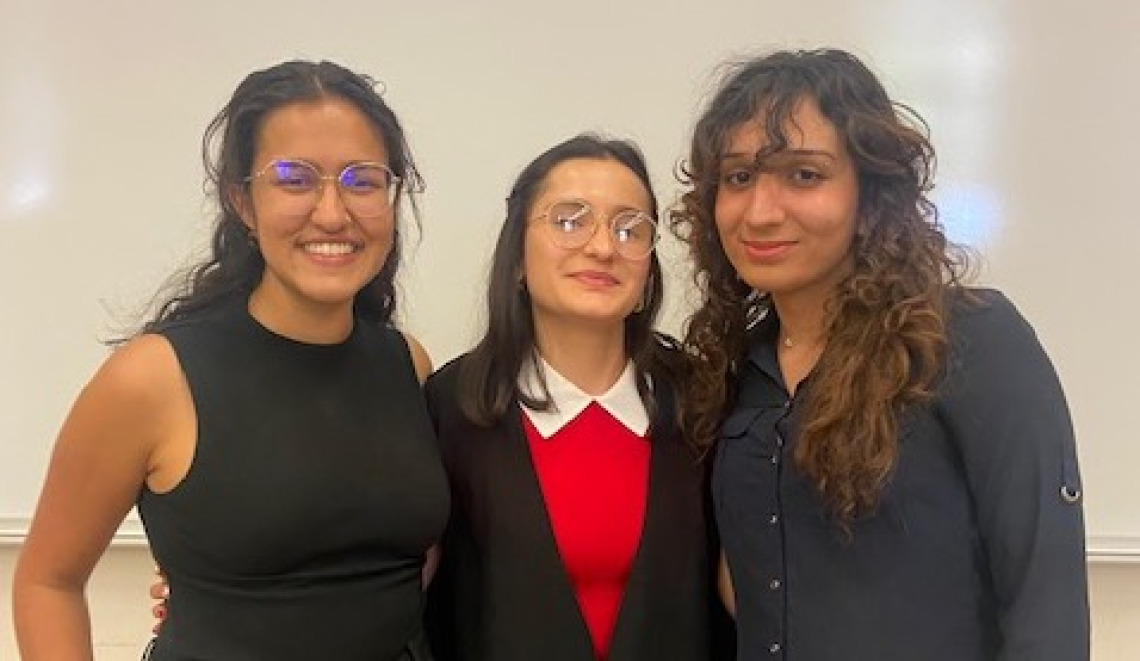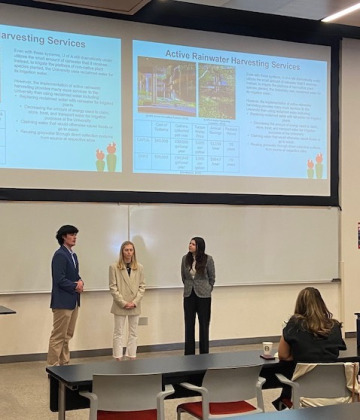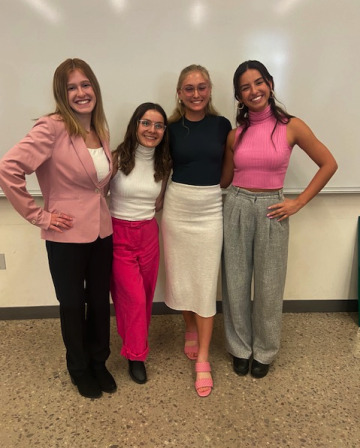Revitalizing higher education with the topic on everyone’s mind: sustainability
Undergraduate teams at UA join Sustainable Design Challenge, showcasing eco-friendly solutions with a focus on innovation and sustainability education.

On April 12 and 13, undergraduate student teams participated in the inaugural two-day Sustainable Design Challenge, sponsored by the Lundgren Retail Collaborative (LRC) and the Retailing and Consumer Science program at the Norton School of Human Ecology.
Students from across campus in all program disciplines were invited to participate in the challenge and propose a waste-reducing, environmentally-conscious product or service that could be implemented at the University of Arizona or Southern Arizona communities.
“As an aspiring Urban Planner,” said Ryan Szeker, a junior majoring in Sustainable Built Environments. “I hope to create more sustainable cities and communities by altering municipal resource consumption patterns in an effort to mitigate and adapt to the ongoing effects of climate change."

Teams spent hours brainstorming, researching, and finally developing their proposal to present to a panel of judges the following day. The proposals tackled a wide range of issues that impact the environment, such as reducing food waste, limiting air conditioning use through more efficient windows, encouraging recycling through gamification, and a number of proposals for better water use.
With students being tasked to solve issues related to the university or Southern Arizona, students began closely inspecting everyday things they encounter that could be improved. “We wanted to do something to get rid of the flooding on campus that happens every time it rains,” said Sarah McKeighan. “As we thought about it more, we realized our efforts needed to be scalable for the whole campus. That’s where we came up with the idea for multiple different techniques in the various area of campus.”
The winning project titled “Biofilm Innovation for Microplastic Cleanup”, described the development of a biofilm filter that could remove microplastics from washing machine greywater.
When asked how the team came up with the concept, Karina Carillo said, “We found a study that described how modulating biofilm can potentiate the activity of novel enzymes that degrade plastic. This was the foundation for our project because that meant that our filter could be used for commercial purposes, as plastic would be cleaned up in a more reasonable time frame.”

“Sustainability is an intersection of so many issues in our society today: misinformation, distrust of scientists, inefficient scientific communication, exploiting people of lower socioeconomic statuses, loss of accountability in culture, short-sightedness", said Arpita Gulati. As Gen-Z enters the workforce, a majority (75%) of them state that they want to work for an environmentally responsible company.
“As I pursue an education and career in retailing,” said Payton Lord, “which is an inherently unsustainable industry, I recognize the importance of learning more about sustainability within my sector to promote the implementation of more ethical and efficient practices.”
Through the Retailing and Consumer Science program, students take courses such as Consumers, Environment and Sustainability and Sustainable Consumption that examine and develop retailer strategies in response to global environmental and social challenges. As this next generation enters the workforce, they’ll be equipped with knowledge to adopt or implement sustainable business strategies from supply chain through customer management.
Winning Teams
1st Place - “Biofilm Innovation for Microplastic Cleanup”
Isra Athar, Bioengineering
Karina Carillo, Fashion Industry’s Science and Technology
Arpita Gulati, Neuroscience and Cognitive Science
2nd Place – “Reducing on-campus flooding through rainwater harvesting”
Sarah McKeighan, Retailing and Consumer Science
Peyton Lord, Retailing and Consumer Science
Ryan Szeker, Sustainable Built Environments
3rd Place – “Sustainable gardening to shorten restaurant suplly chain”
Jiawei Chen, Retailing and Consumer Science
Yanming Kuang, Chemistry
Zhiqiu Liang, Interdisciplinary Studies
Jinhao Zuo, Retailing and Consumer Science
